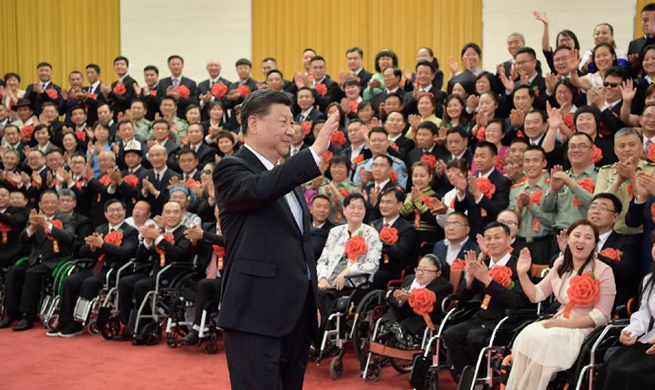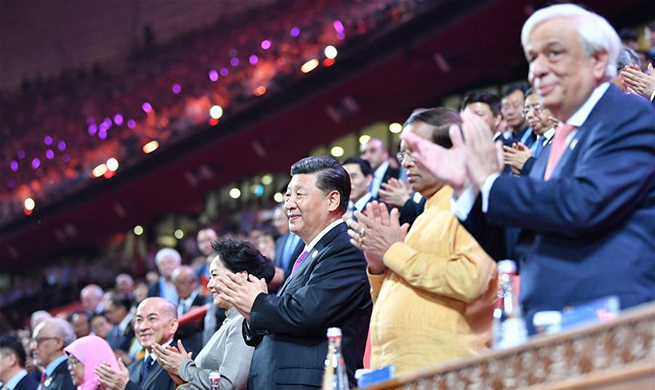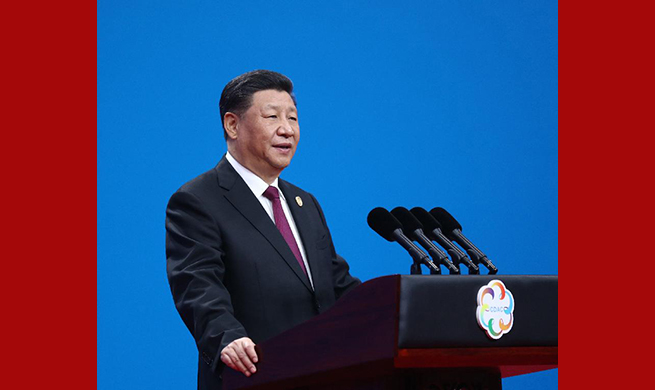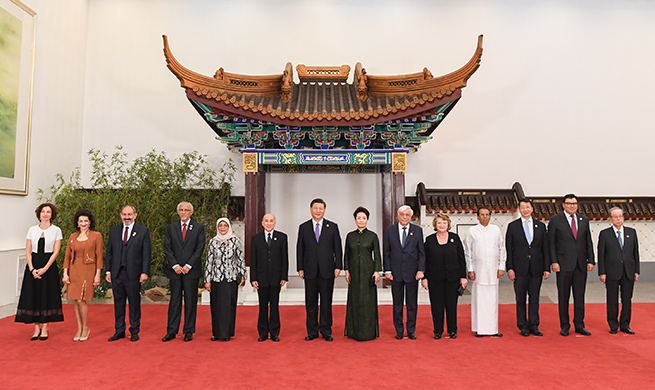TOKYO, May 16 (Xinhua) -- China's economic development is expected to steadily advance in the medium and long term despite the U.S.-China trade friction that only has a limited effect, Japanese experts said.
The United States has recently raised tariffs on Chinese goods again, causing a broad drop in world stock markets. However, it will not do much to slow down China's economic development in the long term, said Hidetoshi Tashiro, chief economist at Sigma Capital Ltd., in an interview with Xinhua.
The Chinese economy has the potential development ability to resist the drag caused by the trade spat, Tashiro said, listing two main reasons.
Firstly, China has outstanding technological advantages, he said. As the mobile communication network will officially enter the era of 5G this year, Time Division Duplex mode will become much more useful than Frequency Division Duplex. While Frequency Division Duplex still dominates in Japan's current 4G, China has adopted Time Division Duplex mode since the 3G era and accumulated technologies for the new era, the economist said.
If 5G construction is officially launched worldwide, there will be a huge demand for Huawei and other Chinese IT enterprises. Similar to Japan's economy which achieved growth through "building a nation by electronics" in the 1970s and the first half of the 1980s, the construction of 5G around the world will be a tailwind for China's economy, Tashiro said.
Secondly, China will gain a new demographic dividend. China's National Development and Reform Commission in April issued documents on key tasks for new urbanization in 2019, advocating that rural migrant population should be moved to cities with 1 million to 5 million permanent residents, he said.
The expert said that about 100 million people are expected to move to cities in China in the future, bringing the similar enormous growth that Japan saw after the Second World War.
From 1959 to 1975, young people fresh out of rural middle and high schools in Japan went to live and work in cities like Tokyo from the countryside, Tashiro said.
This period coincided with Japan's rapid economic growth from 1955 to 1973. With the increase of urban population, there is a huge new demand for infrastructure construction, housing, electrical products and furniture, which had become one of the pillars of Japan's rapid economic development, he explained.
Katsuyuki Hasegawa, chief economist of the research division at Mizuho Research Institute Ltd., said that the strength of China's economy lies in its growing and thriving market, which is favored by companies around the world, including in the United States.
"I believe it is coherent with the interest of U.S. businesses and even the United States that China continues to open its domestic market," he said.
Takamoto Suzuki, senior economist at Marubeni Research Institute, said that China's consumer price index (CPI) in April rose 2.5 percent year on year, while the core CPI, which excludes the impact of food and energy, rose 1.7 percent, which indicated that price of commodities in China remained stable.
So despite concerns for inflation, there may not be a shift to tightening policy in China, he said.
"Currently, it is difficult for the world economy and finance to be in chaos. In this situation, with stability of the world economy and finance and some stimulus given to the economy by policies, I estimate that it is increasingly impossible for the Chinese economy to collapse," he said.
"The advantage of the Chinese economy lies in its diversified markets. By constantly creating new growing markets to make up for the decline caused by damping markets, factors of production can be more smoothly transferred to new markets. In other words, China is strong at generating structural reforms," he said.
According to Tetsuro Homma, senior managing executive officer at Japan's Panasonic Corporation, China remains the world's largest market for home appliances and the best-selling market for the world's most expensive consumer durables, joining the United States as a center of innovation.
Internet of Things (IOT) appliances associated with smartphones are relatively unappealing in Japan, said Homma, who is in charge of Panasonic's global home appliances business.
The company plans to strengthen research and development of IOT home appliances in the Chinese market, and is considering back selling goods of China in the Japanese market, Homma said.
"We hope to find a future in China," he said.



















